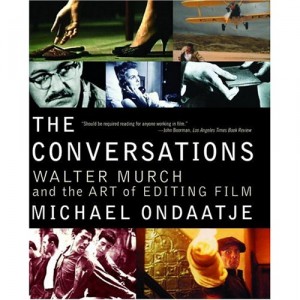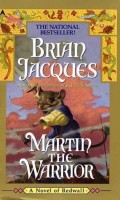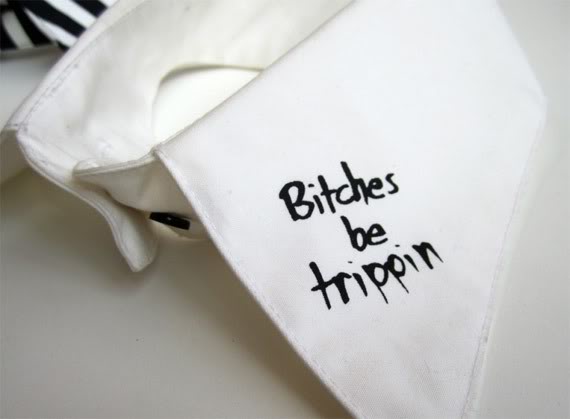Arts, Process, Edit
 In France*, cheese-making is really two processes. On dairies, milk is collected from cows, goats, or sheep, is cultured, maybe cooked, somehow molded. That is the first process. After that, an affineur takes over. The whole job of an affineur is to age cheese. Keep it at the right temperature, rotate it, maybe dust it off from time to time. When you hear about cheese caves, that’s the affineur part. In the small-producer cheese world, the affineurs are the stars, the ones whose name you would know if you worked in that industry. Pierre Androuet, Herve Mons, Marcel Petite (O the Comte from the cellars of Marcel Petite!). One affineur might get wheels from several different trusted dairies, whose names never make it on the packaging (unlike in the US, where most cheeses seem to be branded by farm/dairy).
In France*, cheese-making is really two processes. On dairies, milk is collected from cows, goats, or sheep, is cultured, maybe cooked, somehow molded. That is the first process. After that, an affineur takes over. The whole job of an affineur is to age cheese. Keep it at the right temperature, rotate it, maybe dust it off from time to time. When you hear about cheese caves, that’s the affineur part. In the small-producer cheese world, the affineurs are the stars, the ones whose name you would know if you worked in that industry. Pierre Androuet, Herve Mons, Marcel Petite (O the Comte from the cellars of Marcel Petite!). One affineur might get wheels from several different trusted dairies, whose names never make it on the packaging (unlike in the US, where most cheeses seem to be branded by farm/dairy).
So it goes with films–the editing is done by someone else, not the director or screenwriter. Walter Murch was the editor and/or sound editor (he’s the only person to win Oscars for both) of Apocalypse Now, The Godfather II, The Conversation, and many many others. His work on The English Patient acquainted him with Michael Ondaatje. The two had a series of conversations/interviews (Ondaatje is asking the questions, primarily) that are collected in a book called The Conversations: Walter Murch and the Art of Editing Film.
The book is a trove. I’ve been meaning to write about it here for over a year (!), but I’m still not all the way through it. Obviously, I’ve put it down a lot, but also I just really want to take my time with it because there is so much to learn and reflect on. I’m fascinated by how these two men, both of whose work I adore, find these nexuses between film editing and book editing. It’s a reminder of how much we as word-people have to learn from people who work in other media. The reason I started with the cheese example is that the big overarching thing the book makes me think about is the relationship between making and aging/editing/tending/revising. Below are a few passages that stood out for me. But really, you should have this book. It was assigned to me in grad school by the great Susan Bell, author of The Artful Edit, which, if a friend hadn’t made off to California with my copy, would get its own post. But with all respect to Bell and Stunk and White and the rest, The Conversations is the best writing manual (not that it’s trying to be) that I’ve ever read. So, here are some bits (O for Ondaatje and M for Murch):
M: It’s a stage in the process I call “editing with eyes half closed.” You can’t open your eyes completely, which is to say, you can’t express your opinion unreservedly. You don’t know enough yet. And you’re only the editor. You have to give everything the benefit of the doubt. On the other hand, you can’t be completely without opinion, otherwise nothing would ever get done. Putting a film together is all about having opinions: this not that, now not later, in or out. But exactly what the balance should be between neutrality and opinion is a very tricky question. The point is, if you squash this down, then you push the whole curve of the film down, whereas it might have righted itself by its own mysterious means. If you try to correct the film while putting it together, you end up chasing your own tail.
Appropriating an appropriation of an appropriation
Kate Durbin has posted images from Andrea Quinlan’s copy of The Polished You, which Kate produced for Vanessa Place’s Factory Series, which Vanessa describes as her version of Warhol’s practice of having “art-workers” help him create his paintings.
You can read more about the Factory Series here. And you can check out the whole series at Ood Press.
Plus, you, too, can appropriate the text created by Kate created by Vanessa created by Nancy Taylor, by purchasing a copy of The Polished You. After making it your own, you can scan the images of your copy and send them to Kate and she’ll post them.
I love this project for a bunch of reasons, not least of which are the many questions it raises about authorship, ownership, consumption, production, participation, and whether or not the idea of appropriation is merely the evil connotation of personalization.
An Interview with David Cotrone of Used Furniture Review
 Ryan Call: Tell me a little bit about yourself. I’ve seen your name and writing around online, and I know you live in Plymouth, MA, but other than that, I don’t know much about you.
Ryan Call: Tell me a little bit about yourself. I’ve seen your name and writing around online, and I know you live in Plymouth, MA, but other than that, I don’t know much about you.
David Cotrone: No worries; there’s still a lot I don’t know about me, too. But here’s what I do know: I’m currently a student at a school in Massachusetts. I’m afraid of driving a car.
RC: Wait, why are you afraid of driving a car?
DC: I don’t know, really. Maybe it’s because I have visions of losing control of the wheel, or of another driver taking me out. Or maybe I’m afraid to move in vehicle that’s not my own body because my body’s exactly what I’m not yet comfortable with–rather, the thing that controls my body. So I speak to this thing at night. Converse. Get to know it. Make peace. Repeat. READ MORE >
February 10th, 2011 / 12:06 pm
9 hand-painted maps of imaginary islands
9. I’m sort of blar of folks saying the words in first line “Call me Ishmael” are “so intense and effective that they go down in history.” That’s revisionist as Gary Kasparov. The reason “Call me Ishmael” is a boss first line can be found 212,757 words later.
9. Some good books written by musicians if that’s your thang-a-lang.
9. Anybody else want to ban the word moon from all contemporary poetry?
9. Deb Olin Unferth Revolution ‘review.’ Somebody call roll, because we got a lack of class up in here. Oddly, Mr. Robert P. Baird doesn’t really do any reviewing, per se. He might have read the book, not sure. Here’s a snarky line, not about the actual book, etc:
Today, Ms. Unferth is a narrowly but deeply admired writer of fiction, hailed wherever the names Diane Williams and Gary Lutz hold currency.
Hold currency, oh man. I was actually waiting for MRPB to break into tipsy doggerel next.
9. I should talk a bit about hooking and hooking up and the girl libertine.
Do say.
“I wish my soul were larger than it is.”
 Someone asked me today whether I would be sad if I published (x) book and it alienated people from my community of origin, lost me their affection, etc. (I was raised a Southern Baptist, attended an extreme fundamentalist Christian school where many of the faculty were educated at places like Bob Jones University for the fourteen years preceding college, broke from those places to become an associate pastor in a more moderate tradition briefly after college, worked briefly in religious publishing, finally gave all of it up entirely, and I haven’t believed in god for almost ten years now.) I said that the only time I hear from most people from that time is when I publish something they don’t like & then they reach out “in love” to express displeasure and offer correction. Those who really love me, I said, have been in my life all along, regardless of whether or not they disagreed with me. My friend said he was in a similar place in life as me, but that it wasn’t worth it for him to lose the affection of those who have been in his life since he was a child, especially members of his family. READ MORE >
Someone asked me today whether I would be sad if I published (x) book and it alienated people from my community of origin, lost me their affection, etc. (I was raised a Southern Baptist, attended an extreme fundamentalist Christian school where many of the faculty were educated at places like Bob Jones University for the fourteen years preceding college, broke from those places to become an associate pastor in a more moderate tradition briefly after college, worked briefly in religious publishing, finally gave all of it up entirely, and I haven’t believed in god for almost ten years now.) I said that the only time I hear from most people from that time is when I publish something they don’t like & then they reach out “in love” to express displeasure and offer correction. Those who really love me, I said, have been in my life all along, regardless of whether or not they disagreed with me. My friend said he was in a similar place in life as me, but that it wasn’t worth it for him to lose the affection of those who have been in his life since he was a child, especially members of his family. READ MORE >
REDWALL OBIT
 Brian Jacques, the Redwall guy, just died. I read those books when I was tiny… when there were only like four or five of them (now there are 21; a new one is soon to be published). His name brings back memories. I used to have nightmares about a huge rodent with a skull-helmet and a large, weighted net chasing me.
Brian Jacques, the Redwall guy, just died. I read those books when I was tiny… when there were only like four or five of them (now there are 21; a new one is soon to be published). His name brings back memories. I used to have nightmares about a huge rodent with a skull-helmet and a large, weighted net chasing me.
Mark Twain’s Biography Told by a Selection from the Index in His Autobiography (UC Press, 2010)

Adventures of Huckleberry Finn, money earned from, 372, 597
The Adventures of Tom Sawyer, McDougal’s cave, 397
Albert Edward, Prince of Wales, 116, 499
Alexander VI (pope), 623
Alexander the Great, 465, 476
Alonzo Child (steamboat), 614
Animals: cat given Pain-Killer, 52, 351-52, 588; Clemens family cats, 345; compared to humans, 186-87, 218-220, 312
Belgium, 581
Bermuda, 479, 654
Bonaparte, Catherine, Princess, 540
Bonaparte, Napoleon, 172, 465, 500, 507, 540, 550
Caesar, Julius, 465, 467
Casanova, Giovanni Giacomo, 5, 6, 15
Charles I (king of England), 204, 526, 528
Charles II (king of England( 526
Cincinnati, Ohio, 461, 559, 646, 651
Clemens, Clara Langdon (Bay): death of mother, 25
Clemens, Jane Lampton: facility with words, 212; on SLC’s [Mark Twain] drinking and swearing, 215-16, 268, slaves owned and hired, 212, 471, 528; love of animals, 199.
Clemens, John Marshal: undemonstrative nature, 274, 321
Clemens: infant habits, 363
Clemens, Orion: middle-of-night visit to young lady, 52, 454
Clemens, Samuel Langhorne (Mark Twain): Freemasonry, 651; seventieth birthday dinner, 267-68, 305, 558, 657-61
ATTITUDES AND HABITS: dinner table behavior, 387-88; dueling, 294-98, 570-71; eating and drinking, 137, 210-12…; laziness, 305, 391; lying, 5, 268-69, 277, 425, 630; Presbyterian conncience, 157-59…; sleeping, 659-60; writing speed, 8, 228; CHILDHOOD: left behind by family, 209, 379, 530; sweethearts, 417-18
Colt’s Patent Fire-Arms Manufacturing Company, 101, 481, 494, 560
Doctors: Olivia Clemens’s experience as a teenage invalid, 356, 590-91
Drinking: anecdote about Episcopal sextons, 398-99; anecdote about drunken sutler, 290-91
France: SLC’s [Mark Twain] burlesque map of Paris, 362-63, 593. See also Joan of Arc
German language: compound word, 118-19; German nursemaid who uses profanity (Elise), 394, 607
Grant, Ulysses S.: similarity to Jervis Langdon, 373, 598; spiritual advisor, 99-100
Hannibal, Mo. Cave near, 213-14, 481-19, child left behind during move, 209, 379, 530, 600; cholera and measles epidemics, 52, 352, 420-21, 589, 628; tragedies that SLC [Mark Twain] witnessed as a child, 157-159, 514-15, 610
Howels, William Dean: SLC’s letters to, about “old pigeon-holed things,” 13, 30
Insurance company scandal, 257, 268, 271, 364-66, 464, 549
Langdon, Charles Jarvis: wagon incident, 357-58
Leopold II (king of Belgium), 268, 557
Life on the Mississippi: prototype of Huck’s father, 531-32; tramp’s death, 157-58, 514
Munro, David A., 564; as editor of North American Review, 47, 54, 54n102, 672, as Players club member, 284-85, 432, 547, 548
Nevada Territory: dueling in, 294-98, 568-70, SLC as miner, 445, 447, 543, 553, 641, 651
New Orleans: SLC seeks ship for South America, 561
Nicholas I (tzar of Russia), 540
Nicholas II (tsar of Russia), 550
Religion: Catholic funerals, 293-94; SLC’s [Mark Twain] Presbyterian conscience, 157-59, 188, 190, 398, 514; Susy Clemens’s “What is it all for?” question, 326, 375, 419, 580
“Roughing It” lecture, 508
Slavery: woman who saves SLC from drowning, 401, 613
Twichell, Joseph H: advice fro anxious suitor, 414-16; anecdote of hair restorer, 289; encounter with profane ostler, 8; witnesses execution of Civil War deserters, 430-31, 632-33
Victoria (Queen of England), 115-16, 126, 499, 501, 527
Whitmore, Franklin Gray, 316, 496, 621; spoon-shaped drive incident, 342-43, 587
Wuthering Heights (servant), 120-24, 500
***
Ben Shattuck is a writer and editor living in San Francisco. He contributes to The Daily Rumpus and interns at McSweeney’s.
February 9th, 2011 / 1:39 pm
Bitches Be Trippin’

I love the Urban Dictionary because they seem to have a definition for everything. I spend a lot of time looking up dirty words and phrases. I learned what a snowball was via Urban Dictionary. It has nothing to do with the snow, that’s for sure. I love the phrase “Bitches be trippin’.” I don’t know why. On a whim, I decided to look up the phrase on Urban Dictionary. Sure enough, there was a definition. According to them, the phrase is “used primarily by heterosexual males to justify the irrational behaviors of women.” For example, when women bring attention to certain pervasive and longstanding disparities, one might say, “I don’t know what all the fuss is about. Bitches be trippin’.”
I think I’m going to start putting my homework up on here: How important are Emily Dickinson’s dashes?
Share Your Shittiest Love Story, Win a Free Copy of J.A. Tyler’s New Book!!!

This is a man being so much other than.
How the love falls out of him, replaced by beads, by water, by nails, by cardboard.
Bent on a curb, blowing kisses to dead lips in that window above, a voice calling out a name, her not looking down at the wreckage.
A man when there is none left.
This is a love poem, a love poem that doesn’t want to be, a love poem about shattering open, about groping for what is left when there is nothing left, when subsistence isn’t enough, when we are damaged and the memories of what was, are all that is.
To celebrate Valentine’s Day & the forthcoming publication of J.A. Tyler’s second book, A Man of Glass & All the Ways We Have Failed (now available for pre-order from Fugue State Press) publisher James Chapman has kindly offered to give away a free advanced copy of the book to one lucky HTMLGIANT reader who shares their shittiest love story in the comment thread to this post. The contest is open between now and Valentine’s day. On the 14th, J.A. Tyler will select the winning comment/story.

